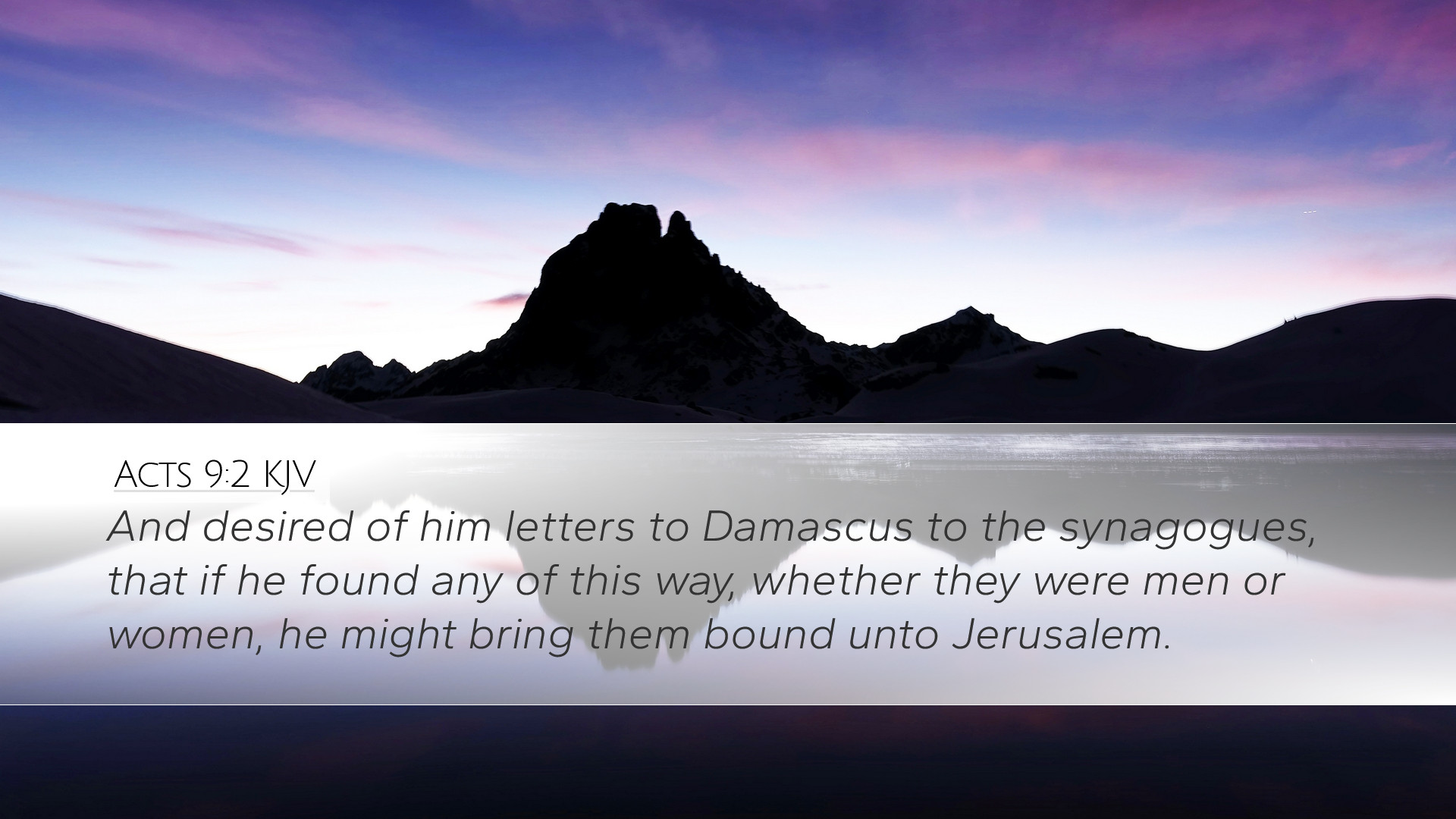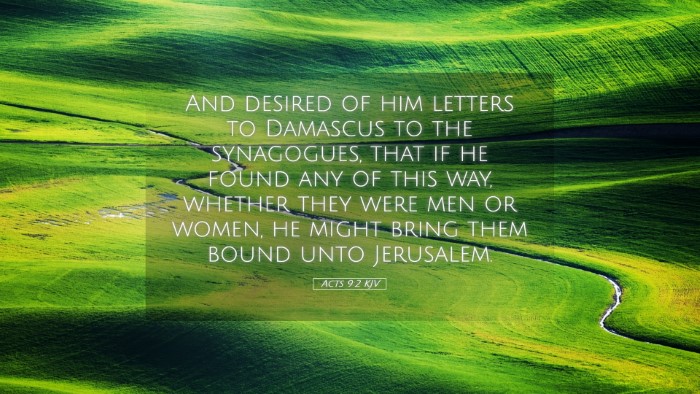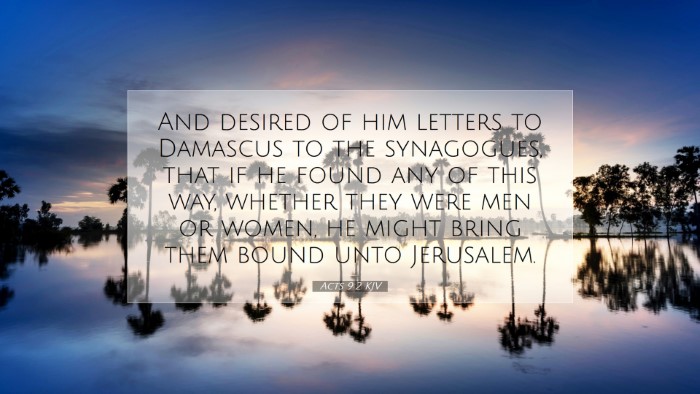Commentary on Acts 9:2
Acts 9:2 states:
"And asked letters of him to Damascus to the synagogues, that if he found any of this way, whether they were men or women, he might bring them bound unto Jerusalem."
This verse is pivotal in the narrative of Saul's conversion, and it reveals significant theological implications regarding the early church and the spread of the Gospel. Below is a combined commentary on this verse from various public domain authors.
Contextual Analysis
This verse is situated within the larger context of Saul's persecution of believers in Christ. As the Apostle Luke recounts, Saul was fervently opposed to Christianity, viewing it as a dangerous sect threatening the Jewish faith and social order.
Historical Background
According to Matthew Henry, Saul's journey to Damascus represents a calculated effort to eradicate the believers known as "the way." This term "the way" signifies the followers of Jesus, highlighting their belief as a distinct path or lifestyle rooted in the teachings of Christ.
The Zeal of Saul
Albert Barnes emphasizes Saul's zeal, noting that he was not a passive participant in persecution; rather, he was an active, aggressive force against the church. His request for letters to the synagogues of Damascus illustrates his intent to operate with authority, seeking to expand his influence beyond Jerusalem.
The Role of Letters
These letters were formal documents that would provide Saul with the legal backing to arrest and extradite followers of Jesus. Adam Clarke points out that Saul's appeal to the synagogues reveals the deep intertwining of religious and civic power in ancient Judea, where the Sanhedrin's authority extended to various communities, including those in foreign cities like Damascus.
Theological Implications
The request for these letters signifies a profound misunderstanding of the nature of Christ’s ministry and foreshadows the radical transformation Saul would undergo.
Law vs. Grace
This pursuit of legal authority to imprison the church represents the Law, which Saul ardently defended. However, his encounter with Christ on the road to Damascus leads to a profound revelation of Grace. Matthew Henry notes that this tension between Law and Grace echoes throughout the New Testament.
The Inclusivity of the Gospel
Additionally, Saul’s willingness to apprehend both men and women signifies the inclusivity of the early church but also reflects the societal tensions regarding gender roles. Albert Barnes remarks that both genders participated equally in the burgeoning Christian movement, showcasing the radical nature of the Gospel.
The Character of Early Christians
This verse also provides insight into the character of early Christians and their commitment to "the way." Despite the danger, believers identified with Christ and were willing to face severe threats. Herein lies an important lesson for contemporary faith communities regarding the cost of discipleship.
The Resilience of Faith
Adam Clarke notes that the resolve of the early Christians serves as a testament to their faith's authenticity and strength. In the face of persecution, they persisted, demonstrating a commitment to the truth they had encountered. This resilience challenges modern believers to consider the depth of their commitment amidst societal pressures.
Conclusion
In summary, Acts 9:2 is a rich verse that encapsulates the zeal of Saul, the early tensions between Judaism and Christianity, the authority granted to persecute followers of "the way," and foreshadows a monumental transformation. It's a profound reminder of the complexities of faith, the call to resilience amidst trials, and the transformative power of grace.
- The Zeal of Saul: Active aggression against Christians
- Authority and Letters: Significance of formal power
- Law vs. Grace: Tension in Saul's transformation
- Inclusivity: The role of men and women in the early church
- Resilience: A call for modern believers


